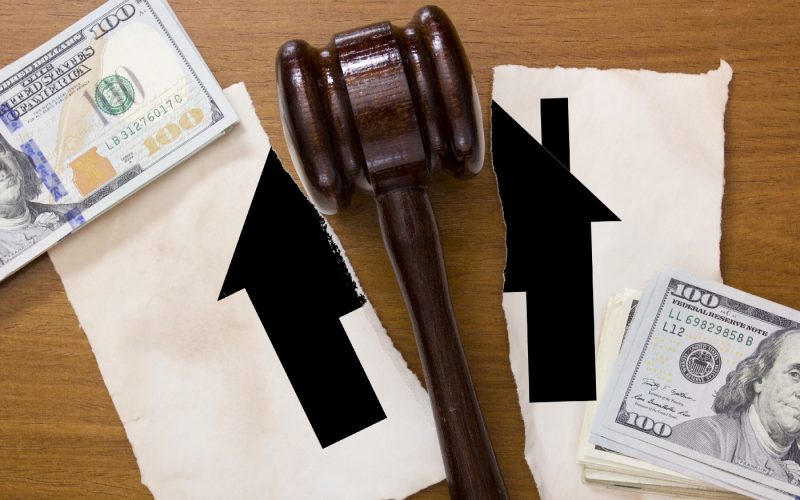One of the factors that come with divorce is division, division of assets, and investment. There won’t be anything like ‘ours’ but rather “yours’ or ‘mine’. We’ll be looking at the divorce asset division, the Texas, Template, Worksheet, Dividing assets without divorce, and divorce property division agreement.
Divorce Asset Division
Divorce asset division is when you and your spouse have decided to divorce. Whereby there must be a distribution of property, assets, and obligations that you and your spouse accumulated throughout your marriage. Moreover, try to get a direct consensus on these concerns. If you are unable to reach an agreement. The court has the jurisdiction to assign property, assets, and obligations to each of you during the divorce process.
What Property Does the Court Have the Right to Divide?
There are some restrictions to the court’s ability to divide a couple’s “marital property” (most property obtained by either spouse during the marriage, regardless of who has legal “title” to the property). Marital property may consist of:
- The family residence;
- Other types of real estate
- Accounts in a bank
- Accounts for investments;
- Vehicles
- personal belongings; and
- The majority of pension schemes and retirement accounts.
Furthermore, debts incurred by you and your spouse after the date of marriage, before the date of divorce must be shared or allocated to one of you.
Is There Any Property or Assets That Cannot Be Divided?
Yes. There are a few exceptions, but the court will not split any “non-marital” property. Non-marital property may include the following items owned by either spouse:
- Purchased before the marriage;
- Inheritance acquired during the marriage;
- received as a wedding present; or
- Acquired via a judicial separation decree.
Non-marital property may also include items you and your spouse chose to remove from the marital property through a lawful agreement. as well as any rise in non-marital property worth during the marriage.
Texas Divorce Asset Division
When a couple marries, Texas divorce asset division law presumes that all of the property they acquire does not belong solely to one of the spouses. Rather, all property acquired by a couple during their marriage is presumed to be part of the marital community estate.
When the marriage community dissolves due to divorce, nevertheless, all property belonging to the community estate is subject to a “fair and right distribution” between the parties. Texas courts have ruled that a “just and reasonable” allocation of community assets does not have to be an equal, 50-50 split of the community estate. Rather, a court will consider many considerations that may justify deviating from an equitable partition of property.
When it comes to community asset divorce Texas division, courts may take the following elements into account:
- Capabilities and talents of each party;
- What advantages would a not-at-fault party have reaped if the marriage had remained intact?
- Opportunities for business
- Physical circumstances of the parties
- The financial situation of each party
- The age gap between the parties
- Size of each party’s individual estates
- The property in question’s nature
- The disparity in the parties’ respective earnings and earning potential
So, what types of property are subject to a just and equitable split during a divorce? During divorce procedures, real estate, personal property, and financial accounts. Some retirement plans and pensions and particular work perks may be divided. Moreover, In Texas, any property or asset that qualifies as a party’s separate or division of property, on the other hand, will not be shared in a divorce proceeding.
Divorce Asset Division Worksheet
Divorce Asset Division Worksheet should assist you in negotiating with your spouse and/or their lawyer, attaching the page to the final agreement, and considering your options.
Moreover, it is not reasonable to split every debt or asset equally when dividing assets, and that’s where the divorce asset division worksheet helps to clarify the ownership of various assets. Furthermore, it also allows you to fill out all of the debt and/or property (joint and separate) and offer it to the partner who wants it. The couple will then consider the division of property ownership and how to effectively proceed through the asset division through the worksheet by divorce. In addition, It will be simple to determine which spouse owns the most assets and how to equitably share funds based on asset ownership and reach equitable solutions.
Dividing Assets Without Divorce
As a result, some ponder whether they should begin dividing their assets without divorce.
One reason that beginning to divide your assets may benefit you is that it may reduce the number of possible problems that you will have to discuss with the other spouse during the extremely emotional time that is divorce. Moreover, Dividing assets before a divorce can enable you and your husband to discuss the matter without the divorce hanging over their heads.
Dividing some assets before the divorce proceedings begin may also assist you in efficiently separating and reducing the number of concerns in your case. For instance, dividing personal property assets such as towels, pots, pans, or even furniture may allow you to move out to your own apartment while retaining certain important home items. However, Moving can be costly, particularly if you are beginning from scratch. As a result, splitting some modest personal property items can assist you and your spouse gets started.
Lastly, dividing some assets before a divorce can help to decrease the number of disputes in your divorce. By deciding who gets specific items ahead of time. You may be able to complete those aspects of the divorce before it even begins. However, this is true not only for minor personal goods, but also for the contents of checking accounts, vehicles, and other large assets.
Divorce Property Division Agreement
Divorce Property division agreement is a major issue in divorce. “Who gets the house?” is one of the most often ask questions.
The division of your property is usually governed by state law. The determination is by whether you live in a separate property or a common property state:
However, separate property is a property that only one spouse owns, such as something you held before marrying. Like gifts or inheritances particularly given to you, or the benefits of a pension that vested before the marriage.
Anything you earned or gained throughout your marriage is considered community property. (e.g., the money from your job that you placed into a joint checking account and used to pay bills or debts during your marriage). Moreover, property purchased with a pairing of separate and community finances, such as a house, is often considered community property. Here are factors to consider when it comes to divorce property division agreements.
The State in Which You Presently Live
Property is divided by the courts in one of two ways: communal property or equitable distribution. Furthermore, Debts are divided using the same guidelines. According to where you live, the property is split as follows:
States with community property: In some states, all marital property is designated as either common or separate. When a couple of divorces, their communal property is usually divided evenly, while each spouse keeps their separate property.
Assets and incomes gain during marriages are distributed equitably (fairly) but not necessarily equal in the other states. Moreover, some of these states may require one party to use separate property in order for the settlement to be equitable to both spouses.
Moreover, you should note that property division does not always imply that everything is actually split equally. Rather, the court may award each spouse a share of the entire worth of the property.
Dividing Property Amongst Yourself
If you and your spouse plan to divide or do a divorce division of your property agreement on your own. Here are some measures to take.
List your possessions. Make a list of everything you and your partner own together. Of course, you can exclude personal objects that both of you feel are of negligible value
Consider the property’s worth. Try to get an agreement on the value of everything worth more than a certain agreed-upon figure, such as $100 or $500. Get an opinion on the value of a house, a business, or anything else that is difficult to evaluate from an agreed-upon outside authority.
Choose the most logical owner. Now, go through your main list, item by item, and assess whether there is a compelling reason for each piece of property to go to one of you or the other. Then Begin with the most valuable stuff and see how far you can get.
Obtain the judge’s permission. If you and your spouse can agree on how to divide the property you own jointly, the court will usually approve your agreement. However, the sole exception is where a non-lawyer party appears to have consented to take far less than half of the property.
What Rights Does My Wife Have if We Divorce?
Matrimonial or marital assets are those that you have accumulated or gained during your marriage. These typically consist of real estate, pensions, savings, possessions, and money in the bank. These resources must be divided equally because they are always added to the total “pot.”
Are You Entitled to Half of Everything if You Get Divorced?
The equitable division of marital assets upon divorce is not a requirement, but it is typically a place to start. The goal of the court is to divide assets in a fair and equal manner, although this does not always entail a 50/50 split.
Do I Have To Support My Wife After Divorce?
As long as the court has the authority to award spousal support, spousal support issues may come up during a divorce, legal separation, or even a nullity case, at the completion of the divorce or legal separation case, or at any time after the divorce or legal separation case has been resolved.
Is My Wife Eligible for Half of My Income?
Therefore, even if an equal distribution of the assets and pensions is thought to be reasonable upon divorce, one spouse is not entitled to receive half of the other’s income. The calculation of spousal maintenance should be based on needs rather than on sharing.
Can I Spend All of My Money Before Getting Divorced?
When two people own a bank account jointly, they each have an equal part of the funds. Without the other’s express consent, either party is allowed to make deposits or withdrawals. Therefore, technically, either party may empty that account whenever they like.
Is It Better to Divorce Before or After Retirement?
You also have additional financial possibilities if you get divorced before retiring. The household income of divorcing spouses may decrease by 23% to 41%. But if you’re still employed, you can work until you reach retirement age to make up for this loss.
What Should You Not Do After a Divorce?
In court, whatever you post online might be used against you. Never share anything on social media that can be deemed shady, unlawful, or unethical. Before publishing anything concerning online dating, gambling, prescription drugs, or even potential online trading, give it some thought.
Conclusion
Divorce asset division is when you and your spouse have decided to divorce, whereby you must distribute the property, assets, and obligations that you and your spouse accumulated throughout your marriage.
Divorce asset division FAQ’s
How do you fairly divide assets in a divorce?
- List your belongings. Working together, make a list of all of the items that you own jointly. …
- Value the property. Try to agree on the value of anything worth more than a specific agreed amount, say $100 or $500. …
- Decide on the logical owner. …
- Get the judge’s approval.
Does my wife get half of everything in a divorce?
Under California’s community property laws, assets and debts spouses acquire during marriage belong equally to both of them, and they must divide them equally in a divorce.
Are assets always divided 50/50 on divorce?
Are matrimonial assets split 50/50? No, this is a common misconception. It is not a rule that matrimonial assets be split 50/50 on divorce; however, it is generally a starting point. The court’s aim is to divide assets in a way that is fair and equal, but this does not necessarily mean half and half.
- DIVORCE SETTLEMENT: Top 15+ Financial Mistakes to Avoid in Your Divorce Settlement
- Personal Financial Plan: Guide To Build Your Financial Plan
- REVOCABLE TRUST: What is Living Revocable Trust?
- TESTAMENTARY TRUST: Definition, Examples, Requirements.
- REALTOR SALARY: The Best US Practices for Major States (Detailed Average Salary Listing)






